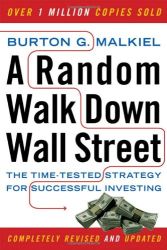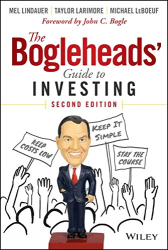Asian stock markets had a tough January so far: Indexes around the region have been falling and our Singaporean Straits Times Index is below 2,600 points at the moment. Now we should all panic and run around with our heads on fire, right?
Of course I am kidding. Nobody should panic and make rash decisions in a dropping market.
What should we do instead?
1) Keep a long term view
As I have written before: stock investing is for the long term. Money you will need within the next 3-5 years should not be fully invested in the stock market but you should have a more conservative allocation.
If you are in it for the long run like me you should not worry about the recent slowdown at all: markets will go through countless more rallies, corrections, drops before you will need the money.
Just have a look at the historic returns of the Straits Times Index over the last 10 years:
| Year | Year-on-Year Performance: Total Return |
| 2006 | 31.7% |
| 2007 | 22.5% |
| 2008 | -47.1% |
| 2009 | 70.8% |
| 2010 | 13.3% |
| 2011 | -14.5% |
| 2012 | 23.4% |
| 2013 | 3.0% |
| 2014 | 9.6% |
| 2015 | -11.2% |
Source: FTSE Factsheet for the Straits Times Index (pdf)
This clearly underlines my point: investing in stocks needs a long term mindset.
2) Ignore the noise
Bloomberg, Financial Times and other publications are full of drastic news these days. As 15HourWorkWeek has written it seems that the sky is falling. Oil price below USD 30, China’s economy slowing down, Iran about to flood the markets with cheap oil… The list goes on.
 A collection of today’s headlines
A collection of today’s headlines
Bad news is good news of course and the many clicks of worried readers translate into good advertising revenue.
Ignore the daily noise of the market and remember that you are in it for the long run.
Checking your portfolio every few hours is pointless when you are investing to grow your money in the long term. This is something I am very bad at myself!
3) Check your asset allocation and re-balance if needed
What is your asset allocation?
Use this opportunity to check if you are still on track: did the recent fall in stock prices mean
If you are looking for more information on asset allocation you can refer to my beginner’s guide including some good links to Vanguard’s excellent tools and analysis on the topic.
Please note: Selling all your stocks in a time of crisis to put them into “safer” investments is not a clever asset allocation rebalancing exercise! Most of the time rebalancing the asset allocation in times of crisis will lead to buying more stocks and not selling them.
4) Diversify your investments
Stocks are cheaper now and some of the dividend yields are becoming rather enticing.
I would suggest resisting the temptation and stick with broadly diversified index funds. The higher yield and upside potential of buying individual stocks is bought with a lot of additional risk.
If you are only invested in Singaporean stocks it might be a good idea to diversify further buy buying some index funds with more international exposure.
5) Read some good books
Instead of focusing on the noise and daily alarmist news, how about reading some great investment books to help you see things clearer and optimize your strategy?
Some recommendations:
 A Random Walk Down Wall Street: The Time-Tested Strategy for Successful Investing (Ninth Edition), by Burton G. Malkiel. (link to the Amazon page)
A Random Walk Down Wall Street: The Time-Tested Strategy for Successful Investing (Ninth Edition), by Burton G. Malkiel. (link to the Amazon page)
 The Bogleheads’ Guide to Investing (second edition) by Mel Lindauer, Taylor Larimore, Michael LeBoeuf. (link to the Amazon page)
The Bogleheads’ Guide to Investing (second edition) by Mel Lindauer, Taylor Larimore, Michael LeBoeuf. (link to the Amazon page)
These two books are absolute classics and I can really recommend them.
All in all: do not panic

Your portfolio will see a lot more crises over the years. Stay calm, do your homework and you will be fine.
Final note: please keep in mind that I am not a professional investment advisor and do not claim to be one. Do your own research and avoid rash decisions.
What are you doing in today’s markets?